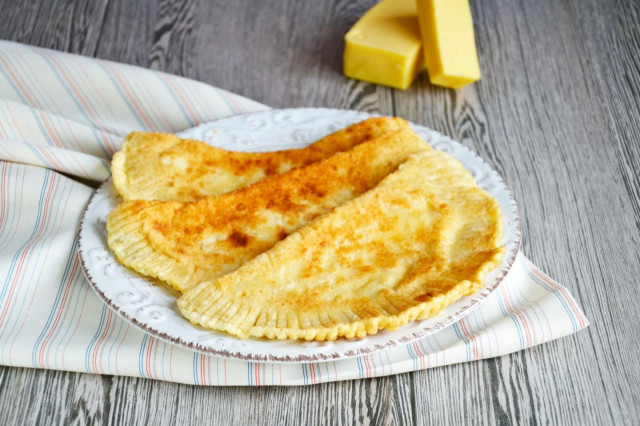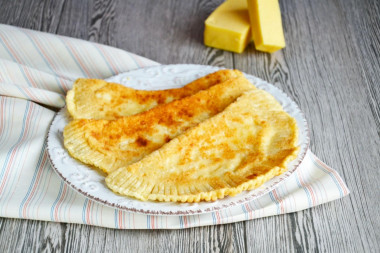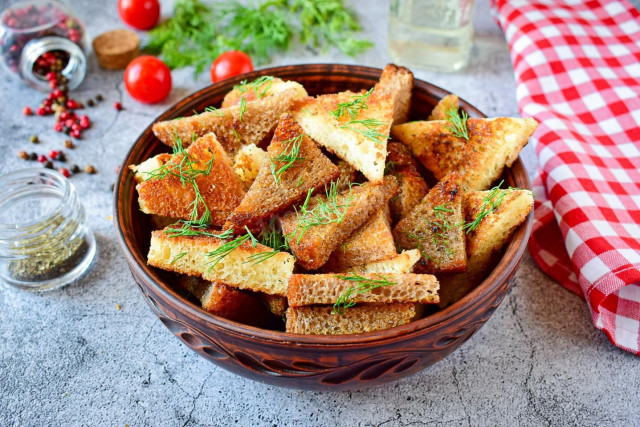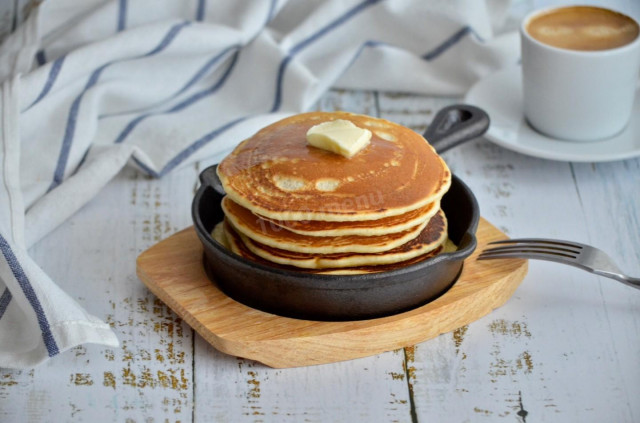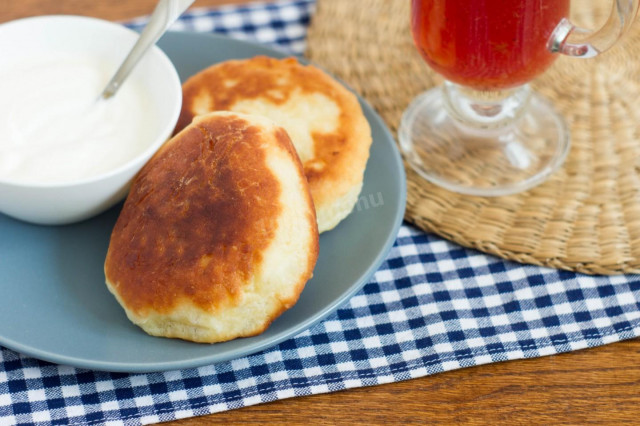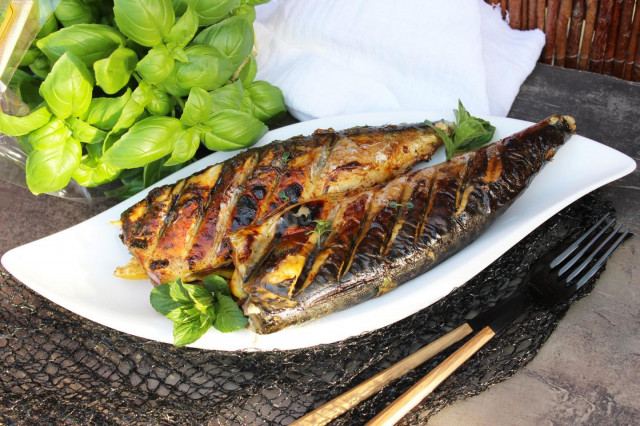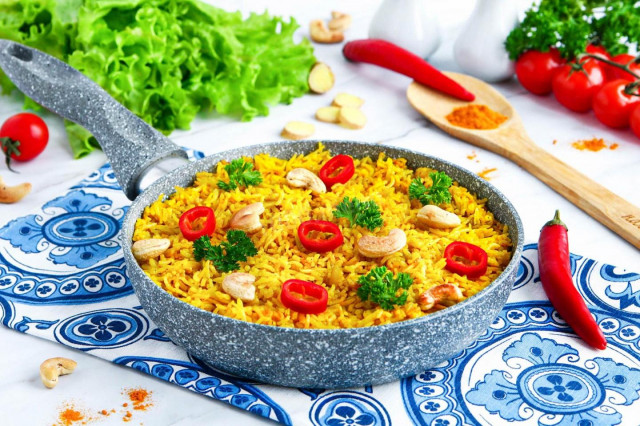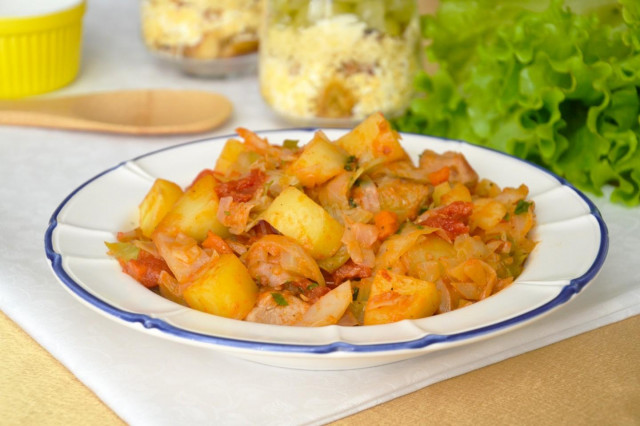Composition / ingredients
Step-by-step cooking
Step 1:
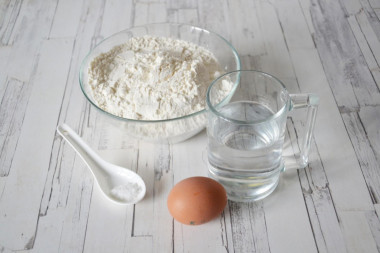
Dough. To prepare the dough for chebureks, we will need: flour; clean drinking water; egg and salt.
Step 2:
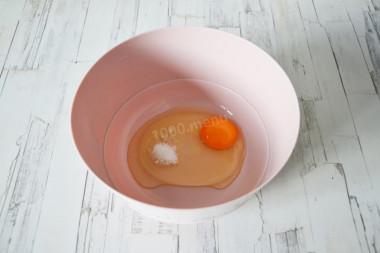
Break the egg into a deep bowl. Add salt. Beat with a whisk until smooth.
Step 3:
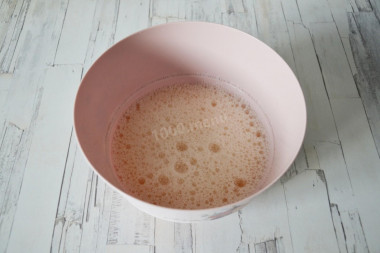
Pour in the water and mix again.
Step 4:
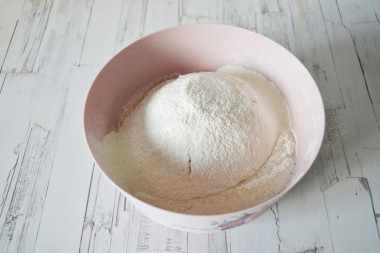
Sift flour and add to eggs.
Step 5:
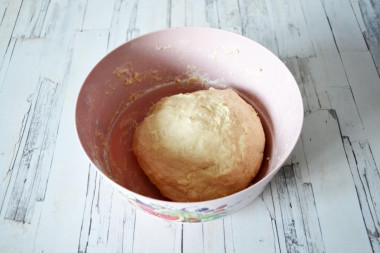
Knead a soft elastic dough, adding flour if necessary. Knead for at least 7 minutes until the dough stops sticking to your hands. Let the dough rest for 10 minutes.
Step 6:
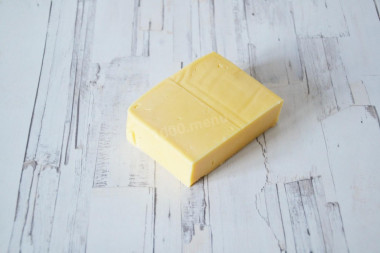
Filling. For the filling in the chubureki, we will need cheese. It can be any hard cheese (Russian, Dutch, Maasdam, and you can also use non-salted mozzarella for pizza).
Step 7:
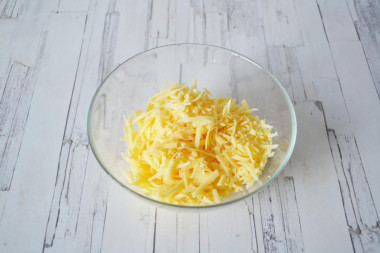
Grate cheese on a coarse grater.
Step 8:
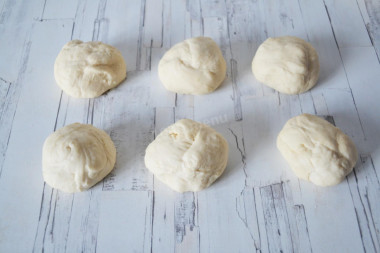
Divide the dough into 6 identical pieces. Roll balls out of each piece.
Step 9:
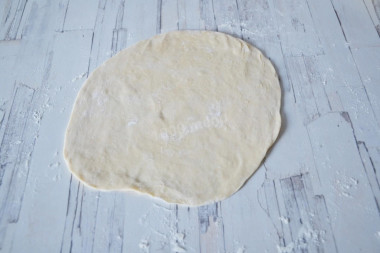
Roll out each ball into a not too thin oval. At the same time, you need to make sure that the table and rolling pin are well dusted with flour, otherwise the dough may break.
Step 10:
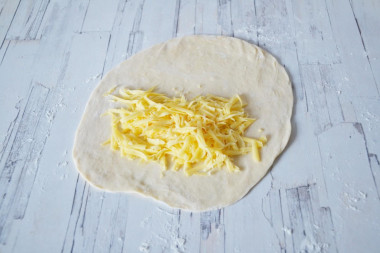
Put the cheese filling on the lower half of the dough, stepping back from the edge of 1 cm.
Step 11:
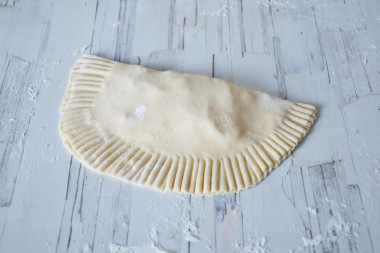
Cover the filling with the second half of the dough, forming a semicircle. The edges of the cheburek are fastened with a fork. The size of the cheburek should not be larger than the diameter of the frying pan in which it will be fried. The first cheburek I had was big, so the edges bent a little. But the next pasties I rolled out smaller.
Step 12:
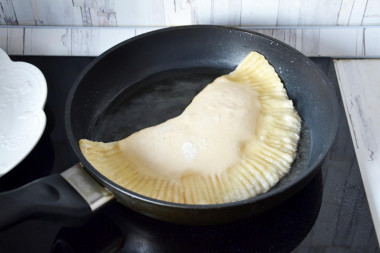
Heat sunflower oil in a frying pan and fry the chebureks on both sides until golden brown.
Step 13:
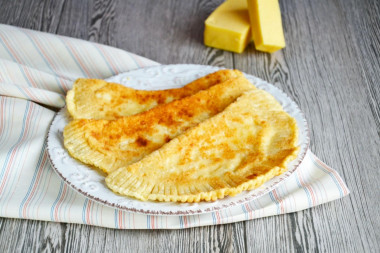
Put the ready-made pasties on a paper towel to remove excess fat and immediately serve them to the table while they are hot. Enjoy your meal!
The main thing here is to prepare the dough correctly. At first, during kneading, it sticks strongly to the hands. And here it is important not to succumb to the temptation to add more flour to get rid of stickiness. We need to keep kneading. And if you add flour, then a little. Or even better, just put your palms in a bowl of flour and knead the dough further.
Because in chebureks the dough should be soft. If you overdo it with flour, the dough will become tight and harden during frying.
If it is possible to use kitchen appliances for kneading, for example, a kitchen machine with a hook attachment, then it is better to use it. She will knead the dough well and may not have to resort to additional flour. You also need to knead in the car for about 7 minutes.
And you can add chopped greens to the filling.
Caloric content of the products possible in the composition of the dish
- Chicken egg - 157 kcal/100g
- Egg white - 45 kcal/100g
- Egg powder - 542 kcal/100g
- Egg yolk - 352 kcal/100g
- Ostrich egg - 118 kcal/100g
- Dutch cheese - 352 kcal/100g
- Swiss cheese - 335 kcal/100g
- Russian cheese - 366 kcal/100g
- Kostroma cheese - 345 kcal/100g
- Yaroslavsky cheese - 361 kcal/100g
- Altai cheese 50% fat content - 356 kcal/100g
- Cheese "Soviet" - 400 kcal/100g
- Cheese "steppe" - 362 kcal/100g
- Uglichsky cheese - 347 kcal/100g
- Poshekhonsky cheese - 350 kcal/100g
- Lambert cheese - 377 kcal/100g
- Appnzeller cheese with 50% fat content - 400 kcal/100g
- Chester cheese with 50% fat content - 363 kcal/100g
- Edamer cheese with 40% fat content - 340 kcal/100g
- Cheese with mushrooms of 50% fat content - 395 kcal/100g
- Emmental cheese with 45% fat content - 420 kcal/100g
- Gouda cheese with 45% fat content - 356 kcal/100g
- Aiadeus cheese - 364 kcal/100g
- Dom blanc cheese (semi-hard) - 360 kcal/100g
- Lo spalmino cheese - 61 kcal/100g
- Cheese "etorki" (sheep, hard) - 401 kcal/100g
- White cheese - 100 kcal/100g
- Fat yellow cheese - 260 kcal/100g
- Altai cheese - 355 kcal/100g
- Kaunas cheese - 355 kcal/100g
- Latvian cheese - 316 kcal/100g
- Limburger cheese - 327 kcal/100g
- Lithuanian cheese - 250 kcal/100g
- Lake cheese - 350 kcal/100g
- Gruyere cheese - 396 kcal/100g
- Whole durum wheat flour fortified - 333 kcal/100g
- Whole durum wheat flour universal - 364 kcal/100g
- Flour krupchatka - 348 kcal/100g
- Flour - 325 kcal/100g
- Salt - 0 kcal/100g
- Water - 0 kcal/100g
- Sunflower oil - 898 kcal/100g
- Refined sunflower oil - 899 kcal/100g

